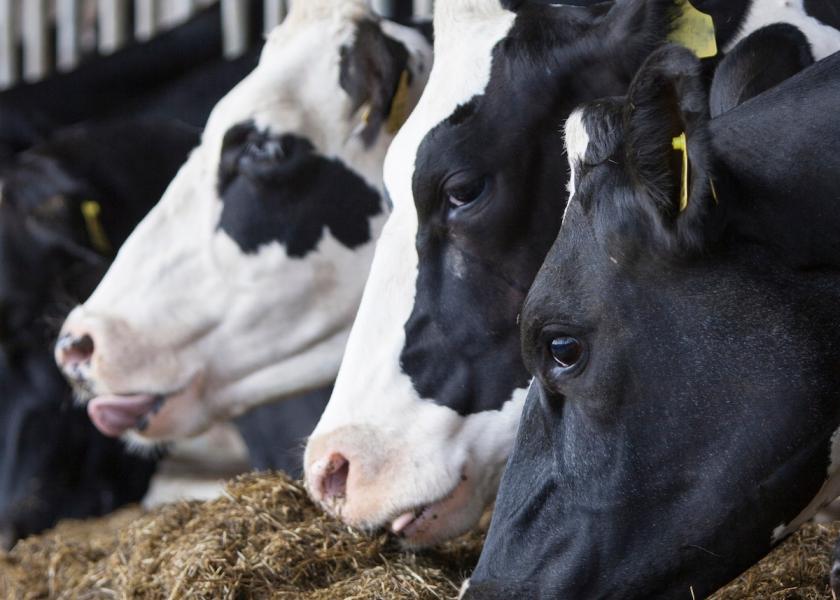Interest Growing in Inulin for Lactating Dairy Rations

Inulin is a type of soluble fiber found in plants. It is not digestible by humans, but is widely used in human diets as a prebiotic to promote gut health; and to relieve constipation, promote weight loss, and control diabetes.
While inulin is found in thousands of plants, the two most plentiful sources are chicory root and Jerusalem artichoke. Inulin is also a fructan, meaning it is made up of chains of fructose molecules. In monogastrics, like humans, the small intestine cannot break down the links between these molecules. But what happens to it in the rumen?
Two teams of Chinese researchers recently completed peer-reviewed studies exploring inulin supplementation in dairy rations – how it behaved and how it influenced cow performance.
In the first study, they investigated the effects of inulin on rumen fermentation parameters; rumen microbiome and metabolites; and lactation performance and serum indexes in lactating Holstein cows.
The simple study divided 16 cows into two groups. One group of 8 cows received no inulin (control), while the other received 200 grams per cow per day of inulin powder processed from Jerusalem artichoke tubers. The experimental feeding period lasted 6 weeks, including a one-week adaptation period.
The researchers found that the cows supplemented with inulin:
- Had significantly higher milk production, milk protein, lactose rate, and proportion of saturated fatty acids in milk.
- Showed a decrease in pH and concentration of ammonia nitrogen (NH3-N) in the rumen.
- Showed an increase in acetate, propionate, butyrate, and lactic acid in the rumen.
The research team attributed performance enhancement to the fact that it appeared inulin in the diet increased the amount of commensal bacteria and short-chain fatty acid bacteria in the rumen, which promoted amino acid synthesis and metabolism; inhibited lipid metabolism; and decreased the levels of total cholesterol and triglycerides in serum.
The second study evaluated the effects of inulin at different supplementation levels in lactating rations. Six groups of 6 cows each were evaluated, for a total of 36 mid-lactation Holsteins. They received, respectively, 0 (control), 50, 150, 200, 250, and 350 grams of inulin powder per head per day.
The animals received their trial ration for 2 weeks prior to collection of rumen fluid, milk, and blood samples, which were then collected weekly for 3 weeks.
Results of this study included:
- Milk yield and milk fat concentration increased linearly with increasing inulin dose.
- Milk urea nitrogen and somatic cell count decreased linearly.
- Ruminal concentrations of acetate, propionate, and butyrate increased linearly with inulin dose.
- Ruminal pH and ammonia nitrogen concentration (NH3-N) in the rumen decreased linearly as inulin dose increased.
- The concentrations of lactic acid and total volatile fatty acids were linearly upregulated with increasing inulin dose.
Overall, researchers from the second study concluded that inulin supplementation increased milk production, shifted milk fatty acid profile, upregulated rumen volatile fatty acid concentration, and enhanced antioxidant and immunity function in dairy cows, with each factor improving as inulin dose increased.
Both research teams concluded that, while inulin supplementation shows considerable promise in enhancing lactating-cow nutrition, more research is needed to better understand its metabolic processes and mechanisms of action.







